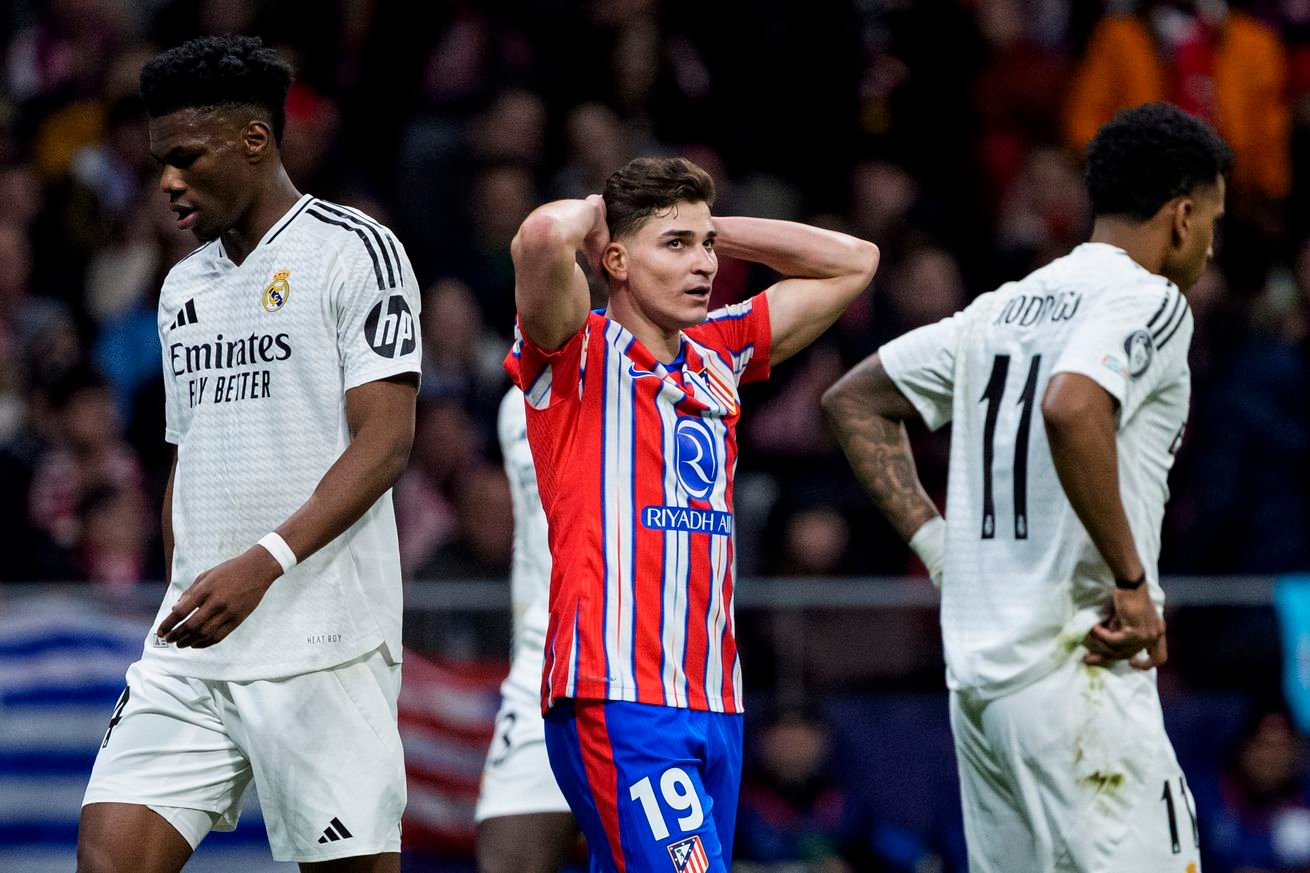
The International Football Association Board (IFAB) has officially updated the laws of the game following the disallowed penalty taken by Atlético Madrid’s Julian Alvarez against Real Madrid in the Champions League last March. The new clarification alters how accidental “double touches” are interpreted during penalty kicks.
Under the previous interpretation of Law 14, Alvarez’s penalty — which briefly leveled the shootout score at 2-2 — was ruled out after VAR review revealed the ball had brushed his standing foot before he struck it with his right. Referee Szymon Marciniak ruled the penalty invalid, and Atlético ultimately lost the shootout following further misses from their players.
The incident sparked immediate protest from Atlético players and staff, with head coach Diego Simeone arguing post-match that the penalty should have stood since “the ball had not moved” upon contact with Alvarez’s standing foot. Slow-motion replays, however, proved the ball had moved, prompting its disallowance under Article 14.1, which previously stated:
“The kicker must not play the ball again until it has touched another player. The penalty kick is completed when the ball stops moving, goes out of play or the referee stops play for any offence.”
Atlético later issued a formal complaint to UEFA and urged a review of the law. UEFA confirmed it would raise the matter with FIFA and IFAB — and now, the governing body responsible for football’s laws has issued a revision to the rules.
The Rule Change
In a newly issued circular, IFAB clarified the law by stating that accidental double touches will no longer automatically result in disallowed goals during shootouts or open play. Instead, if a player unintentionally touches the ball with both feet (e.g., due to a slip), and the ball enters the goal, the penalty must be retaken.
“(When) the penalty taker accidentally kicks the ball with both feet simultaneously or the ball touches their non-kicking foot or leg immediately after the kick: If the kick is successful, it is retaken,” the circular reads. “If the kick is unsuccessful, an indirect free kick is awarded (unless the referee plays advantage when it clearly benefits the defending team) or, in the case of penalties (penalty shoot-out), the kick is recorded as missed.”
The document goes on to explain that referees who previously disallowed such goals were following a reasonable interpretation of the law:
“This situation is rare, and as it is not directly covered in Law 14, referees have understandably tended to penalise the kicker for having touched the ball again before it has touched another player, thus awarding an indirect free kick to the opposition or, in the case of penalties (penalty shoot-out), recording the kick as missed.”
However, IFAB distinguishes between deliberate second touches — such as a player intentionally striking a rebound off the post — and unintentional ones that occur when a kicker slips or missteps:
“This is very different from the penalty taker accidentally kicking the ball with both feet simultaneously or touching the ball with their non-kicking foot or leg immediately after they have taken the kick, which usually occurs because they have slipped when taking it.”
Still, the statement emphasizes that such accidental double touches must not be overlooked, since they can mislead or disadvantage the goalkeeper:
“Not penalising an accidental double touch would nevertheless be unfair, as the goalkeeper can be disadvantaged by the altered trajectory of the ball.”

